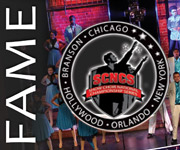
Let’s all face it, we would travel a lot more with our ensembles if it were as easy as, “Okay, get on the bus and let’s go!” But it’s not—not even close. There are two major logistical areas to consider when it comes to off-site performances: administration and travel. The first area is always your responsibility, but the latter is only yours if you are a glutton for punishment!
You will need to handle the administrative responsibilities associated with the trip, and while you are busy trying to ready your ensemble for the performances, you will need to be sure that you have covered your bases. The logistics for moving a group to a performance may be handled by a travel professional; taking this route will significantly lighten your workload. The following checklist is designed to help guide you in preparation for travel.
ADMINSTRATIVE
Administrative Permission
These tasks are probably the most logical first steps in all travel. It’s good to have your principal/headmaster on board with your travel plans, and also have them put it on the calendar. Taking these steps can help build support for your efforts as well as offering credibility for student absences in other academic areas.
Paperwork
Some of the initial paperwork for your central office may include travel approval, field trip request forms, out of state travel forms, and means of transportation forms. You will also need the emergency contact forms, insurance forms, and indemnity forms from all travelers.
Financial Account
Depending on your system, you should generally separate your travel funds from general operating funds. If you are not using a travel company, you will become an accountant. Work with your school bookkeeper or booster club treasurer and set up a separate account.
Fundraisers
If you are going to raise funds, you will likely need permission for that. Select a profitable fundraiser with a proven track record for success, then complete the necessary forms with your administration.
Chaperones
With any travel, wrangling students in foreign places is better not done alone. A good ratio is one adult per six students, but check your school’s policy. Have student/chaperone groups assigned in advance.
Housing List
This list is often needed by hotels in advance. You should never put adults in rooms with students who are not their own children.
Contest Registration
If your ensemble is preparing to compete, be sure and complete the application; the process may include submitting your program, a picture of your ensemble, and possibly a recording.
Traveler List
One week prior to departure, a final list of all travelers should be provided to school administration, faculty, and staff. Also, make sure to communicate with a school nurse to help make you aware of any medical concerns.
Meetings
While everyone is busy, sometimes planning meetings are necessary. An initial meeting should be held to present the trip to the families and students. A price and payment plan, including specific deadlines for money collection and a cut-off date for sign-ups, should be presented at this meeting. Another meeting should be held about one week prior to departure in order to go over what to pack, chaperone identification, form collection, review of the itinerary, and a clear presentation of rules. If you are using a travel agency, they will most likely attend and present at both of these meetings.
TRAVEL
Transportation
If you are traveling by air, you will want to find a carrier with nonstop service if possible, or a large enough layover to reorganize your group between flights. Don’t be surprised for larger groups if you travel on two separate flights. All groups will need bus service. While some groups meet at the airport to cut out one element of cost, once you arrive at the destination, you will want a reliable bus company ready to pick up your group and transport them to the hotel, or contest venue. You may also need their services as you sightsee, tour, shop, and eat. The complete itinerary will be due to the bus company prior to departure.
Performance
If you are competing or performing, you will want to know the logistics of where to meet any performance representative, the timeframe, the flow of the contest, and the departure procedures.
Entertainment and Dining
While on any trip, you will want to experience all a great location has to offer. Tickets to sightseeing attractions, exhibits, and amusement parks should be sorted out prior to arrival in order to maximize time at the venue. Finding a place large enough to accommodate your group can be a challenge when selecting dining options; you should also consider whether the chosen dining establishment can meet the dietary needs of your group. Food courts, buffets, and continental breakfasts are always a great idea; otherwise you will need to evaluate menu options. Make sure to budget adequate time between locations for traffic, along with sufficient time at the various locations to experience the venues. A tour guide is always a good idea—they know the area and can make a trip into an experience.
Lodging
Where to stay is quite possibly the most important decision when housing a group; lodging can make or break a trip. The location of the housing site is almost as important as the quality of the facility. Placing your group too far from the venue can cost you valuable time in the commute, but a hotel in the wrong part of town can be a constant security risk. Finding a place to stay that will be comfortable, accommodating, and clean yet affordable is the most important decision for the trip outside of your destination choice.
Clearly, when it comes to travel, there is so much to consider before you even set foot on the bus! Travel professionals can lighten the workload of the director. While directors can manage the travel logistics, they have enough to think about, with the work of rehearsing the ensemble to make them performance-ready, coupled with the administrative work to prepare for departure. For these reasons, off-loading the extra labor to an experienced professional can be the best option for a wonderful travel experience.











